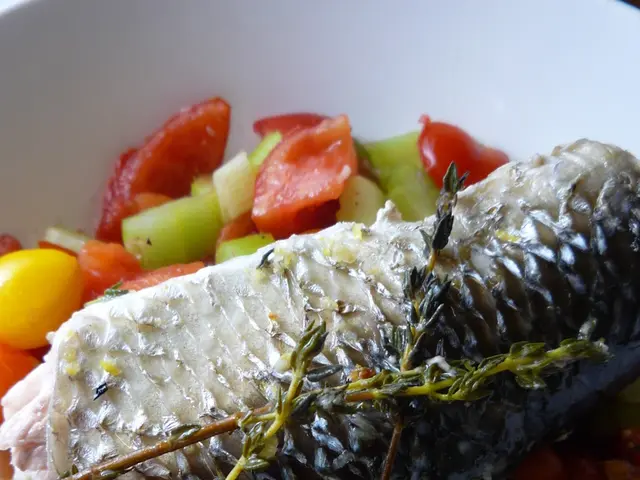Exploring Prebiotic Soda as a Fiber-Rich Beverage Option?
Prebiotic Soda: A Potential Gut-Friendly Alternative to Traditional Sodas?
A growing number of prebiotic soda brands are hitting supermarket shelves, promising a healthier carbonated beverage option. Claiming less sugar and calories than conventional sodas, these brands assert that their products promote gut health. But do they deliver on this promise?
To understand the potential benefits of prebiotic sodas, it's essential to distinguish between prebiotics and probiotics. Probiotics, living microorganisms beneficial for gut health, can be found in fermented foods like yogurt, kimchi, and kombucha. Prebiotics, on the other hand, serve as food for probiotics, supporting their growth and promoting good gut bacteria. Fiber is the most common form of prebiotic, but certain compounds like polyphenols, found in fruits and other plants, can also act as prebiotics.
While both components are crucial for a healthy gut microbiome, it remains unclear how effective getting pro- and prebiotics from supplements and beverages versus whole foods is. Diane Javelli, RDCD, a clinical dietician at the Nutrition Clinic at UW Medical Center - Montlake, notes that not all sources of probiotics are able to survive stomach acid and reach the lower intestine to help repopulate the gut. Prebiotics, as non-living substances, don't face the same issues but may have their own set of challenges when extracted from whole foods.
So, do prebiotics in soda actually benefit the gut? The most common prebiotic fiber used in soda is inulin, which can be derived from plants like agave, chicory, and artichoke. Its soluble nature makes it ideal for fiber formulations added to prebiotic beverages. Inulin adds a slightly sweet flavor to drinks without requiring sugar, a selling point for prebiotic soda manufacturers. Different brands utilize varying amounts of inulin, ranging from 2 to 9 grams per serving.
However, the benefits of consuming prebiotic fiber like inulin in soda for the gut remain uncertain. Javelli states that prebiotics can support the health of beneficial gut bacteria but adds that research is needed to determine if prebiotic sodas deliver the same results. Obtaining just one type of fiber, isolated from its whole food source, may not offer the same advantages as the various types of fiber and other nutrients found in whole grains, fruits, and vegetables.
Another cause for concern is inulin's potential side effects. Not all bodies treat fiber the same, and some people may experience gas, bloating, or worsened symptoms if they have irritable bowel syndrome. Additionally, other soda ingredients could lead to issues, such as acid reflux and heartburn from apple cider vinegar or interactions with medications, including blood thinners, caused by certain herbs.
Advocates argue that prebiotic soda can be a stepping stone for reducing sugar intake and help transition people away from drinking large amounts of soda. Compared to regular soda, which can contain as much as 40 grams of sugar (nearly twice the recommended daily limit of 25 grams), prebiotic soda typically contains only 4 to 5 grams of sugar and fewer artificial flavors and additives.
If you're looking for alternative ways to incorporate prebiotics into your diet, consider tea, spices, oils, dairy, and, of course, whole fruits, vegetables, and grains. Each source offers its unique benefits and should be prioritized over prebiotic soda for obtaining dietary fiber. For the most part, prebiotic sodas provide a good option for those seeking a bit of a fiber boost and want to decrease their sugar intake. But, like any beverage, moderation is key.
- Prebiotic sodas, promising gut-friendly alternatives to traditional sodas, contain inulin, a fiber derived from plants like agave and chicory, believed to promote gut health.
- Nutrition experts suggest that research is required to determine if prebiotic sodas deliver the same gut benefits as whole foods, which offer a mix of fiber and various nutrients.
- While prebiotic sodas may helplower sugar intake compared to traditional soda, they should be consumed in moderation due to potential side effects of inulin and other soda ingredients.
- Food-and-drink options such as tea, spices, oils, dairy, and whole fruits, vegetables, and grains are prioritized over prebiotic soda for obtaining dietary fiber and its associated health benefits.
- In the realm of health-and-wellness and fitness-and-exercise, prebiotic soda may serve as a stepping stone for reducing sugar intake, but a balanced lifestyle incorporating various sources of dietary fiber, prebiotics, and whole foods is still the ideal approach.








